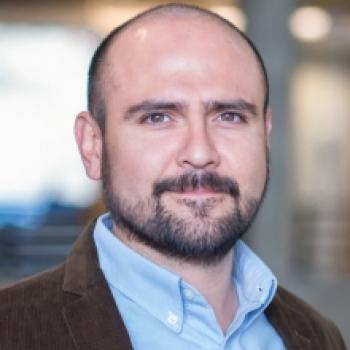
Alvaro Vazquez Mayagoitia
Computational Scientist
Biography
Álvaro Vázquez-Mayagoitia is an expert in computational and theoretical chemistry. His experience spans both methods and applications of electronic structure theory with high-performance computing.
He joined the Argonne Leadership Computing Facility (ALCF) in 2011, as part of an Early Science Program ALCF-2. In 2013, he accepted a position as part of the ALCF Computational Science team. As a member of that team, Alvaro actively participates in the continuous enhancement of features and performance of a number of quantum chemistry codes, including NWChem, BigDFT, Quantum-Espresso, MADNESS, and FHI-aims.
With the goal of efficiently using ALCF resources and accelerating simulations, he has worked on the optimization of codes and libraries for Argonne’s petascale systems, like Intrepid, Mira and Theta. At ALCF, he provides support, advice and training for scientific projects in fields related to physics and chemistry. Most recently, he has assisted in the preparation and review of proposals for grants sponsored by the U.S. Department of Energy and the National Science Foundation.
Prior to joining ALCF, Alvaro held a postdoctoral position at Oak Ridge National Laboratory and the University of Tennessee working with MADNESS and NWChem codes. He developed tools for molecular spectroscopy and evaluated weak interactions.
In addition to supporting teams participating in Early Science, INCITE and ALCC projects, Álvaro is collaborating with multiple projects in the ALCF Data Science Program that are deploying software for Machine Learning approaches and Complex Workflows to accelerate chemical and materials discovery. His work with these projects has contributed to advancements in predicting organic dyes to improve solar cells, and in the study of inner forces of molecular crystals with applications in medicine and electronics.
Álvaro also leads the ALCF Postdoctoral Committee, where he manages the recruitment and hiring of postdoctoral researchers to work on both computational science projects and software development efforts for next-generation supercomputers. As part of this role, he is actively involved in mentoring ALCF postdocs to ensure they are developing the skills and experience needed to advance their careers.